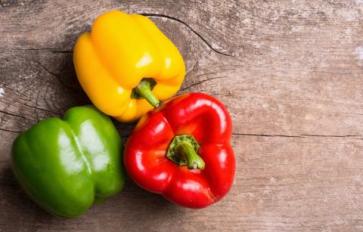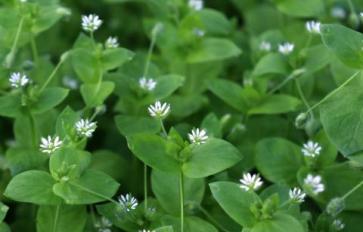
Join Basmati.com every week for a Q&A session with one of Basmati’s practitioners, Melissa Hill (FDN-P)! We know that there is a lot of confusing information out there, which can make applying health advice overwhelming. Sometimes, it’s best to ask a practitioner directly, so each week we’ll cover a common health question!
Do you have a health question you’d like to ask? Write to us at editors [at] basmati [dot] com () and your question could be chosen and featured in a future column!
Q. What are nightshades? Why would someone avoid eating them?
A. Nightshades are fruits and vegetables belonging to the Solanaceae family which includes over 2,000 species; the most common edibles of these are potatoes, tomatoes, peppers, and eggplant. This family of foods contains certain alkaloids that can contribute to inflammation in the body and play a role in Irritable Bowel Disease, arthritis, generalized stiffness in the body, and some autoimmune diseases. (1)(2) Certain people can have more of a sensitivity to nightshades or solanine in particular.
The solanine alkaloid is part of these plants’ natural defense system. It acts as natural bug repellent to keep itself from getting eaten by insects while it’s growing. The solanine is mostly concentrated in the leaves and stems of the plants, which we usually don’t consume, but smaller amounts are still found in the fruit of the plant. In potatoes, for example, the highest concentration of solanine is in the skin. Potatoes that are turning green or sprouting also contain higher concentrations, so it is best not to eat them.
List of Nightshades
- tomatoes
- tomatillos
- potatoes (all varieties, NOT sweet potatoes or yams)
- eggplant
- okra
- peppers (all varieties, such as bell pepper, wax pepper, green & red peppers, chili peppers, cayenne, paprika, etc.)
- goji berries
- tomarillos (a plum-like fruit from Peru)
- sorrel
- garden huckleberry & blueberries (contain the alkaloids that induce inflammation)
- gooseberries
- ground cherries
- pepino melon
- the homeopathic "Belladonna" (note: this is highly precautionary as homeopathics contain virtually no measurable "active" chemical)
- tobacco
These foods can be very problematic for some people and removing them from their diet could bring relief of their pain, stiffness, and inflammation. It needs to be noted, however, that the majority of people can consume these foods without ill effect and in fact get great health benefits from consuming them! Healthy guts can deal with small amounts of these alkaloids just fine, but people whose digestive system is already compromised might have trouble with them. In fact, the same chemical compounds that cause so many problems in nightshade-sensitive people can bring benefits to people with healthy digestive systems. Capsaicin, for example, can be a great anti-inflammatory, which is one of the health benefits of eating hot peppers. Capsaicin creates a minor irritation which triggers a strong anti-inflammatory response from the body, a beneficial result.
Basically, if you are dealing with any arthritis, autoimmune disease, chronic aches and pains, or stiffness in your muscles or joints, removing nightshades from your diet could be beneficial. Try eliminating them all for 30 days, and then add them back in one at a time and see how you respond.
Overtime, as you work to heal your gut and stabilize your immune system, your body may become less sensitive. A healthy immune system can take on the stress of low doses of nightshade vegetable consumption and you will be able to enjoy some of the foods you love again without pain.
- http://www.greenmedinfo.com/article/potato-glycoalkaloids-adversely-affect-intestinal-permeability-and-aggravate
- Childers N.F. An apparent relation Nightshades(Solanaceae)to Arthritis. Journal of Neurological and Orthopedic Medical Surgery (1993) 12:227-231








